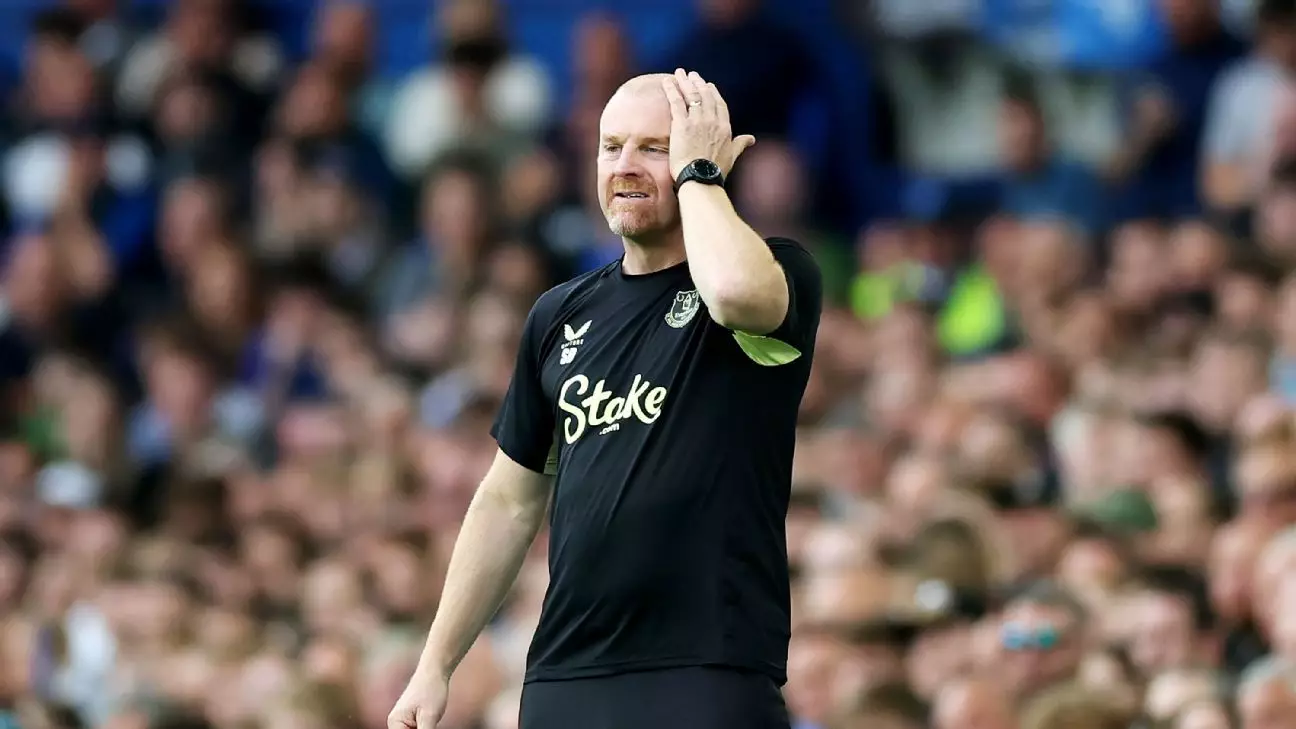Everton Football Club finds itself at a critical juncture, not only in its ownership structure but also on the pitch, where performance has been disheartening. The club’s newly proposed acquisition by the Friedkin Group has ignited a flicker of hope among fans who have endured years of uncertainty. Sean Dyche, the club’s manager, has emphasized the possibility of stability returning, but the road ahead remains fraught with challenges.
The announcement of the Friedkin Group’s interest in acquiring Everton was a welcome relief for supporters who have long desired a remedy to the club’s turbulent history. Dyche remarked that the “early signs look favorable,” indicating cautious optimism about the impending changes. Everton has experienced a prolonged period of instability, characterized by inconsistent performance, financial turmoil, and owner-related controversies. Dyche’s acknowledgment of this chaotic environment suggests an acute awareness of the club’s struggles, which have undoubtedly impacted both morale and prospects for future success.
New ownership typically brings with it a sense of renewal. Fans may envision increased investment in player acquisitions, infrastructural improvements, and long-term strategic planning. However, Dyche’s comments underline the need for patience as the transition unfolds. The complexities involved in a takeover, combined with the club’s existing challenges, mean that tangible improvements may not be immediate. For Everton to navigate this uncertain landscape successfully, the new ownership must strike a careful balance between implementing change and maintaining continuity.
As the ownership saga unfolds, the on-field situation could not be more precarious. Everton’s start to the 2024-25 season has raised alarms; with only one point from five matches, they are perilously close to the relegation zone. The grim reality is that a club with a storied history, including nine Premier League titles, could face the agonizing prospect of relegation for a fourth consecutive season. Despite having invested an astounding £800 million in new players in recent seasons, a silver lining has yet to materialize.
Last season, Dyche famously orchestrated an escape from relegation after overcoming significant odds, including regulatory penalties that saw the club deducted eight crucial points. However, that hard-won survival appears to be slipping as the current season unfolds unfavorably. The relentless pressure of performing while dealing with ownership issues challenges not only the players but also Dyche and his coaching staff, who must inspire improved performances under adverse conditions.
Amid discussions of the Friedkin Group’s potential takeover, it is imperative to acknowledge the series of setbacks and uncertainties surrounding Everton’s ownership. Previous interests, including those from 777 Partners and American businessman John Textor, have added layers of complexity and frustration for fans and management alike. The landscape is ever-changing, making it difficult to predict whether the Friedkin Group can ultimately see the deal through to completion.
Supporters have exhibited cautious optimism, but they are understandably wary of possibility without precedent. Historical precedents of ownership changes leading to quick fixes or immediate success are often rare and oversold. The Friedkin Group, which already holds the reins of A.S. Roma among other investments, carries potential, yet the lessons of stable football management in competitive leagues shouldn’t be underestimated. Success in one market does not guarantee triumph in another.
Despite the tumult surrounding ownership and performance, Dyche’s commitment to the club remains steadfast. “I keep working hard,” he asserts, indicating that he will not waver in his efforts to reshape the fortunes of the team. While the arriving management might facilitate a foundation for renewed success, it is equally vital for existing staff and players to unify efforts. A concerted approach might provide a greater chance of weathering the current storm.
While new ownership may indeed promise stability, the challenges facing Everton on and off the pitch cannot be underestimated. Transitioning from chaos to clarity requires diligence, patience, and a collective resolve among all stakeholders. Ultimately, success will hinge not just on financial input but also on the proper alignment of club vision, strategy, and personnel decisions. The coming months will be critical as Everton seeks to navigate this complex period in its storied history.
